TechnoLive: How to promote your game among thousands of competitors, Maxim Samoilenko
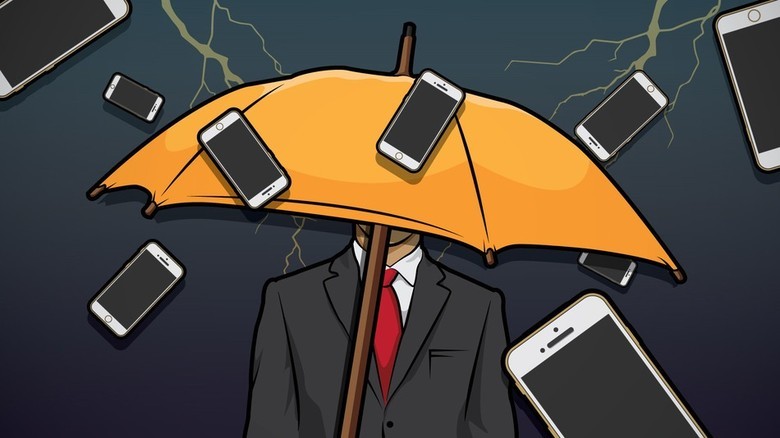
We continue to publish transcripts of our game development broadcasts. Today you will find the story of Maxim Samoylenko, head of project marketing in games, about the specifics of marketing and promotion of games. And on November 15 at 19:00 the next broadcast starts , which will be about VR. The rising trend of this year is VR games. Rising even longer, but in no way able to lift the head trend - helmets and VR glasses. Every few months, another major technology company announces its virtual reality device.
However, no one has yet offered a decent combination of price and quality. What awaits this direction of game development? Will virtual reality technology conquer the mass market? Will the boom of games for VR devices follow? And if the future is not for them, then for what? These and other questions, including questions from the viewers themselves, will be answered by Maxim Pestun, senior VR programmer of the Mail.Ru Group Game Direction, who oversees the development of VR Invaders, a new game in virtual reality from Mail.Ru Group.
')
About this all you will learn tomorrow, and now read the decoding of our last broadcast under the cut.
Nikita Fedotov: Good evening everyone. You are watching "Tehnostrim". I am Nikita Fedotov and our guest is Maxim Samoylenko, Head of Project Marketing in Games. Let's start with the traditional question: how did you get into the game industry and how did it all start?
Maxim Samoylenko: It all started quite prosaic for many people working in games. I have loved games since childhood. My older brother somehow brought Dandy home, I played him for a very long time, I really liked it. Then, when I became a little older, he brought a PC home. I started playing Doom, Quake, all these beautiful games.
Games with me all my life, this is one of my main hobbies and interests. When I studied, entered the university, I didn’t even dream that games would become my profession. I thought: “Games are cool, great, but ok”. I was engaged in a completely different, he studied at an international specialist. But it so happened that at the same time I read with interest all sorts of gaming magazines, websites, and I had many opinions on various topics. And once I read the PC Gamer magazine (Russian edition), then the chief editor was Misha Beskakotov, and I could not resist. This magazine published a "review of the game Quake 4, which insulted me to the depths of the soul - the reviewer put the game a very low score.
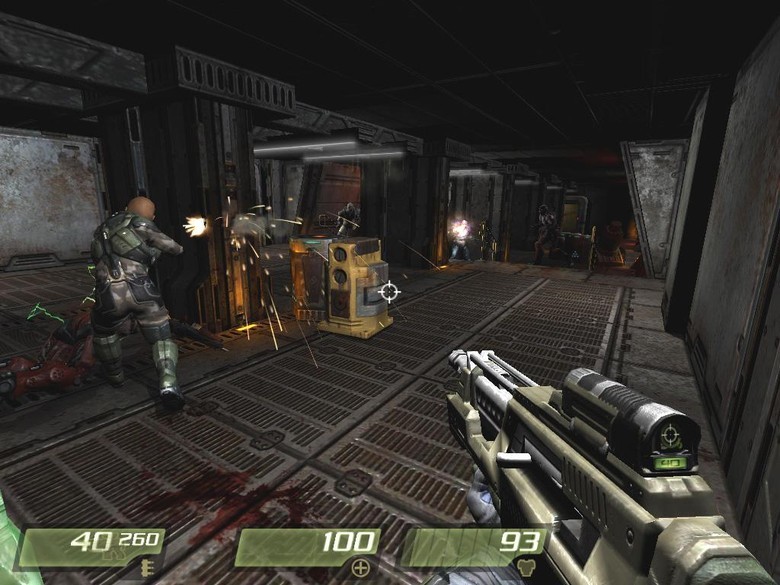
It is now I understand that the game is really not so hot, but then I was very offended, and I wrote a letter: “How dare you? The game is really good. ” I got a good sheet. What was my surprise when Misha wrote me in reply: “Maxim, cool letter. And let's you work with us. "
This became the starting point. I started as a game journalist. He worked as an author, then as an editor, sometimes as a translator in various publications. He wrote not only about games, but also about any consumer equipment. My career path was florid. I worked as a journalist on regional television in Balashikha, but this was not related to games. Then, 5-6 years ago, I joined the Kanobu team (one of our largest gaming sites). Having worked a year and a half there, I went to PR, to the marketing side.
NF: What did you do in Kanoba ?
MS: At first I was the chief editor of one of their satellites, the site was called Gameslife.ru. And then I joined the joint team of the joint editorial "Kanobu", which made kanobu.ru as a site. So from a journalist, I retrained in PR and marketers.
NF: Then, as far as I know, did you get into the SoftKlab?
MS: Yes. When I got into it, the company was called “1C-SoftKlab”. Then the name was reduced to "SoftKlab." I worked there for several years, and I was engaged in PR, and marketing, and even a little bit of business development. What did you do? It was my job before I joined the great Mail.Ru Group team.
NF: At the same time, in SoftKlab you worked, as I remember, on console games and on PC games?
MS: Yes.
N.F .: Basically, it was exactly disk versions, boxed?
MS: Yes. SoftKlab is a distributor company that has historically gained a leading position in the market thanks to an extensive distribution network.
How did the company "1C-SoftKlab"? There were two different companies - "1C" (game direction of the company "1C") and "SoftKlab." SoftKlab was a distributor of console games. A game direction of the company "1C" was engaged in PC-games. In those days, when these companies were united, games on PCs were very actively sold in boxes, on disks, in so-called jewel-kah. At the peak of the development of the Russian gaming market, these two companies were united under the common name - “1C-SoftKlab”. In this form, the company exists now, but the name of the company was reduced to "SoftKlab."
Of course, if we are talking now about the market of console games, then it is still largely boxed. I don’t remember the exact figures now, but half of the profits of this industry are provided by the sale of boxed games. Maybe even more. But in different regions in different ways. Now digital distribution is developing, every year sales are growing in numbers, but so far the boxes are a tremendous force, and this dynamic will not change over the next few years. Unless there is some kind of leap in the generation of consoles.
NF: Thank you. You were doing boxing there. So what's the difference? Now you are engaged in Mail.Ru Group online games, client games, which are not available in the boxes.
MS: No.
NF: At least one game we have released on the boxes, no?
MS: In the history of Mail.Ru Group there were such examples.
NF: At the moment, already ...?
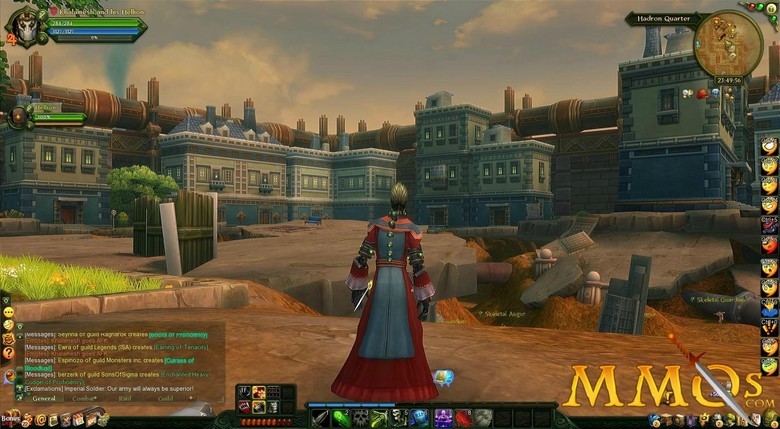
MS: Allods Online just came out in the boxes. There are also all kinds of bundles when we partner with some, conditionally, video card manufacturers. So come out some bandl editions when you bought a video card, and you have inside some kind of exclusive content. But in general - no. If we talk specifically about the game operating department, then at Mail.Ru Group we deal with client PC games that are distributed on the Internet.
NF: The first question in the chat I already liked: “How many people in the team do you have to promote projects?” I think it’s in your department.
MS: If we are talking about the Client Games Operations Department - because the Mail.Ru Group has a lot of different divisions involved in games, then there are 11 people in the marketing department, not counting me, that is, we are only 12. But In general, Mail.Ru Group has a very large vertical gaming marketers, which includes other people not only in the Operating Department. I will not immerse our viewers in this whole story. If you count people in the whole company, one way or another engaged in the promotion of games, you get a few dozen people.
NF: Let's say we have an online game. There are games that we develop within the company, and those that we localize. Let's start with the game, which is developed within the company. At what point does the marketing of such a game begin?
MS: Good question. If we are talking about a game that is being done inside, then marketing connects at very early stages. Moreover, the earlier it connects, the better for everyone. Because it happens like this - I’m not talking about Mail.Ru Group right now, but how can it happen when developers start doing something without examining the market, not knowing what the audience needs. They have their own ideas about the beautiful, they have been making the product for a long time. And then, when they bring information about this product to marketers, to operators, to other people who are already engaged in bringing the product to the market, it turns out that something is not right. It is necessary to correct something in the setting, in the flow, positioning is not very correct, some mechanics are not very correct, and many problems arise. And we at Mail.Ru Group, when it comes to internal development, are trying to make sure that marketers are involved in all processes at the earliest stages. The game may not be located at the prototype stage, but at the stage of some very early production. Already at this moment marketing is connected, and all together - the development team, the operating team, the team working with communities, everyone starts to discuss together what kind of product, what are its main key messages, how to position it. Accordingly, it is such a symbiosis. All make their proposals, ideas, and they adapt constantly.
NF: The choice of the setting and all this, is involved not only the game designer, but also marketing?
MS: Of course.
NF: Just in the past streame, we talked about the fact that before thinking about the game, you need to understand which niche is worth it to occupy, which one is not yet occupied. We had a game designer and studio manager. It turns out that marketers, too. Oh well.
MS: Everyone has his own opinion. It rarely happens that a marketer comes in and says, “Guys, I thought of it. We need to make such a game. ” Maybe somewhere so. Of course, creative people are concentrated in the development teams. The primary impulse comes from working out. That is, there is a team that comes up with something. They sit down, discuss, they have an idea of some kind of game, they can start to prototype something, and at this stage they share with others.
NF: But at some point they can say: “Wait. There are 15 more games like this. And in general, it was interesting about it 3 years ago, and now it’s already tired. ”
MS: Ideally, the earlier all people are connected, one way or another involved not only in the development, but also in the promotion of the product, the better it will be for the final result.
NF: This is what we are describing, it turns out what is happening inside the team itself. And when work begins with an external audience. And when they start to call testers, to release teasers? At what stage?
MS: There are very many intermediate stages there. For example, the game may not yet be announced, no one knows about it outside the internal team, but already at this stage closed focus tests are being conducted. We invite people who sign a non-disclosure agreement that shows the earlier versions. These can be prototypes or very early alpha versions, and people start to play this game, and they are carefully monitored. There is a whole system, how to conduct focus tests. I think there is a lot to read, various developers have told. For example, eight people are sitting in a room, a mirror is hanging, which is, in fact, one-sided. People in the room think that this is a mirror, and in fact, this is a one-way glass, and on the other side the developers are carefully watching them.
NF: They see their emotions.
MS: Yes. And this is just done in order to see what people are doing in the game, what emotions they have, glad they are, not happy. Now they don’t understand where to click, or, on the contrary, they like everything, they straight away figured out the interface, what difficulties they have at all stages. That is, they can not figure out how to start the game, or where to go, go, fly. All these things are revealed by focus testing. Then these people are interviewed, they are given a questionnaire, they answer questions that have been formulated in advance. And according to the results of these focus tests, the development team and the marketing team open a lot of new and important things that allow you to later complete the game or somehow rework it. Or from the point of view of marketing, it helps to understand how to position the product, on what aspects to emphasize. For example, people say: “We really like the physical model. Shooting at you, relatively speaking, is still damp, and the physical model is cool. ” Everyone talks about it, or most, and marketing understands: “Aha, so this is really a key feature that most people will most likely like. So, we need to talk more actively about this when we officially announce the game. ”
NF: We have already accumulated questions from the chat. “What minimum skills do you need to have in order to take an active part in your field?” Depends on the question. If a game designer, then there is one set of skills. If you do game marketing, then this is a different set. I think that we will answer the question of how exactly to get into game marketing.
MS: In fact, this is a difficult question, because different game marketers have completely different ways of getting into the industry. Marketing is the process of bringing a product to the market and working with an audience: attracting a new audience, returning an old audience, working with the current audience. Accordingly, the marketer in addition to knowledge of marketing theory and marketing tools, including PR, should be very well versed in games and gaming audiences. I directly call, if you really want to work in games, and in particular see yourself as a game PR or marketer, then read what people write on the forums, in the comments. Watch how people play games, what they like, what they don't like, what trends you notice. Knowing the psychology of the gamer and the psychology of your audience is key. If you do not understand how the current or target audience plays your games, the games of competitors, how these games differ, what their pros and cons are, then you can hardly be effectively engaged in marketing.
NF: When you talked about the audience, I immediately remembered that you can be a community manager. This can also be the beginning of the path to marketing.
MS: Yes.
NF: In this case, this is the easiest set of skills in an area that can be accessed.
MS: Historically, yes. Through community management or testing. These are the two most obvious tracks in the gaming industry, but not the easiest.
NF: Yes, that is, there are the most minimal qualifications with which you can get.
MS: Even on the example of the Mail.Ru Group company, we have people who came to projects in the position of community managers, without having or having very little expertise in games. And they were revealed in such a way that they became producers. There is one specific example of a person who for a relatively short time (about 1.5 years) has gone from a community manager to a producer. And the producer is the person who is responsible for the product: for its monetization, how much money it will make, what updates there will be. This is the key person for the product. This confirms my words about when you work with an audience, you understand her, you know what she lives for, what she likes, what she doesn't like, what actions come better, which are worse, what boils people, what hurts them. Without knowing this, it is impossible to work with the product.
NF: Yes. In principle, it is possible to take the simplest way, but if there is a making, then they can be easily implemented. It depends on the qualities of the person.

MS: There are many such examples. Designer Harvey Smith, very respected by me, who is now one of the leaders of Arkane Studios, who makes Dishonored, Pray is a new one restarted. Harvey Smith, who made Deus Ex: Invisible War and a lot of great games that I really love. He started out as a tester. He came to one company, sat down, started testing. He was noticed very quickly. Testing the games of companies that were at an early stage of prototyping or alpha versions, he gave such valuable feedback, and subtly noticed some advantages and disadvantages that people involved in game design understood that a person really understands well and needs to be pulled to the process development. Therefore, there are many ways. Here, the main thing is to really love games, understand games and try.
NF: “What are the main channels of attraction? How do we evaluate them? ”Indeed, this question is very much in the subject, I would ask it anyway. We have an online game on PC. Through which channels is it advertised?
MS: There are lots of channels. There are traditional channels: television, outdoor advertising, advertising in cinemas. Depending on the objectives of the product and its target audience, they are used in completely different ways. For example, if you have a task to increase brand awareness - recognition among a wide audience about your game. To put people in their heads the information that the game is important, high-budget and worth the attention, then you need to curtain the city with outdoor advertising, start advertising in cinemas, curtain major gaming sites or not only gaming sites with branding. Here, there is no assessment in some direct marketing conversions, but there is an assessment of the overall image, overall coverage - how much people say, what tone of voice, and so on.
There is a classic performance marketing tool - this is advertising on the Internet through the purchase of advertising. Many places have contextual advertising, there is search advertising, there is advertising in social networks. In fact, there is a completely clear and understandable assessment of effectiveness. There is an understanding of how much one click costs, how much one registration costs, how much one involved user costs. All this is calculated according to rather uncomplicated mathematical formulas. And an experienced brand manager, that is, a person who is directly involved in working with traffic and advertising channels, can with a rather high probability calculate how much money he will make or attract an audience to a project by spending a certain amount on certain channels. In fact, there are a lot of channels.
NF: Just about outdoor advertising and advertising in cinemas. In my opinion, I saw in Moscow one or two games that have had outdoor advertising over the past few years. In the cinema, in my opinion, even less. Is this happening all over the world or in Russia does not enter?
MS: Actually, from the experience of my work in the past SoftClub company, we actively used the brand awareness advertising formats there. There were a number of reasons for this. First, console games are AAA-products, that is, products with a large budget that should bring a lot of money. These are products designed for the widest possible audience. And you need to hook consumers through these loud formats. That is, a man came to the cinema, saw an advertisement for the game GTA V, and realized that he had heard something about it. And then he said in a trailer that GTA V comes out in a week. He is: "Yes, yes, yes, for sure!"

NF: In my opinion, in England on some huge building hung a poster about the exit of GTA V.
MS: There are millions of such examples. New York, as a rule, is all over. Every time you come to Los Angeles for the E3 exhibition, the skyscrapers are painted over with a variety of advertisements. It costs a lot of money, but positioning the product in such a way that everyone understands that the release of this game is one of the main events of the year is very important for large publishing houses. Plus a console audience, it's a bit more casual. , . , . , , , …
..: , ?
..: … , , . , , , . .
, . , , - . , , . , , , - , , , .
..: ?
..: . . , - , Mail.Ru Group, , , , , . . , .
PC-, free-to-play-, , . , , . . PC , , . .
..: « ?». , ?
..: ?
..: « ? , ?»
..: : , , , . .
, , , , , . - , , - , - ( , ), - ( , , ), - . , , .
..: « , , , ?» , , .
..: , , .
..: , PC. - PC. -?
..: . , . , – , , .
..: 50 ?
..: . , , Paradox Interactive, . , - - . , , - . - , .
..: .
..: . , . Obsidian Entertainment, Pillars of Eternity . , -. . , , -.
..: Larian Studios, .
..: . Pillars of Eternity -. , - Paradox Interactive, . , Pillars of Eternity - ?
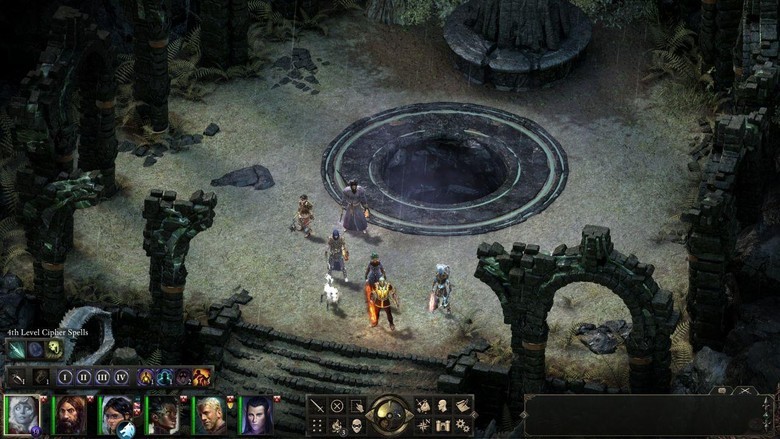
It is hard to say. , , . , PC- . , 5 , , , ( ). Steam Greenlight, - PR-, . , . . , , .
..: , - . -, Steam Greenlight .
..: , . , Steam Greenlight , . , Steam Greenlight . , , . PR- , .
..: , . .
..: . - . , , , , , . , , , , , . free-to-play , , , . — , — , — Steam , — . , . .
..: . . , , PC. . : « , , PC, Android, iOS? , ?»
..: , . , . , . Steam, , , Steam PC . . , . , . , Pokemon Go, , , .

. . , .
, , – discoverability. , , Store, , : , PR. , , , PR . , , . , . .
..: - , ?
..: ? , - - , . : «, , -. ». - , : «! ! ! -, ». , , . , . , , - , - , . , , . . , , , , .
..: . , . , Mail.Ru Group ? , ?
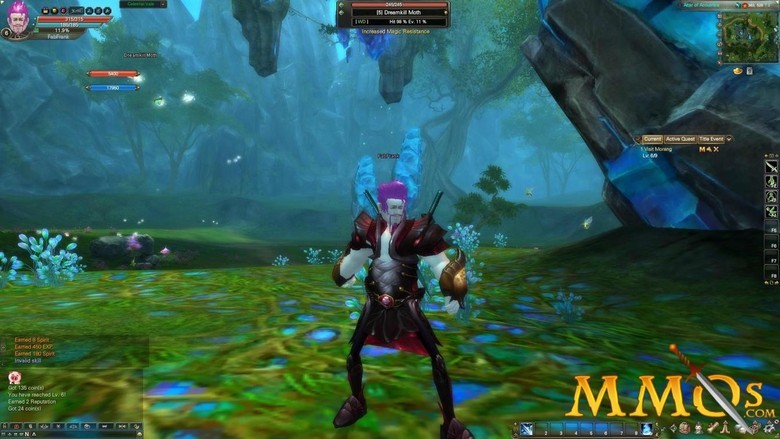
..: Mail.Ru Group, , . , – Armored Warfare: , . Warface, , Skyforge. «», ArcheAge, Perfect World, Revelation Online, , , .
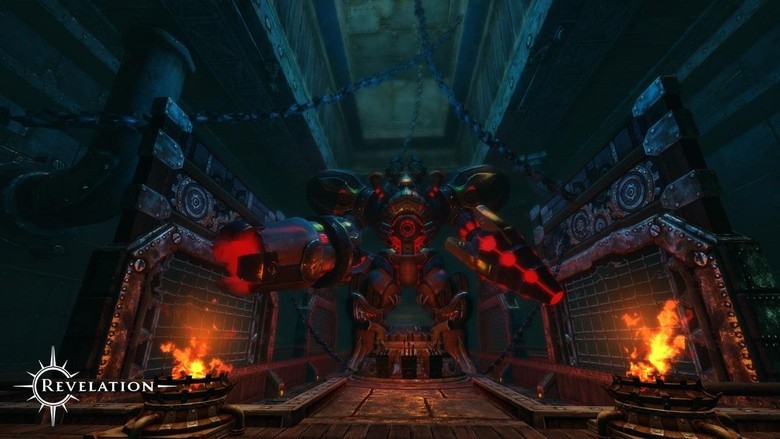
..: . , -.
..: -, . , . , -, - . , Cross Fire . , , .
Revelation Online, . , . - , , , .
..: Revelation Online? ?
..: . , 11 , . -, . .
..: , ?
..: . . , - . - . PR – , , , , - , , . , , , .
– . , - , Warface Open Cup – Warface, . . , , , .
– . . – , - . , , - FMCG-, - , , , , - . .
..: , , Armored Warfare: . .
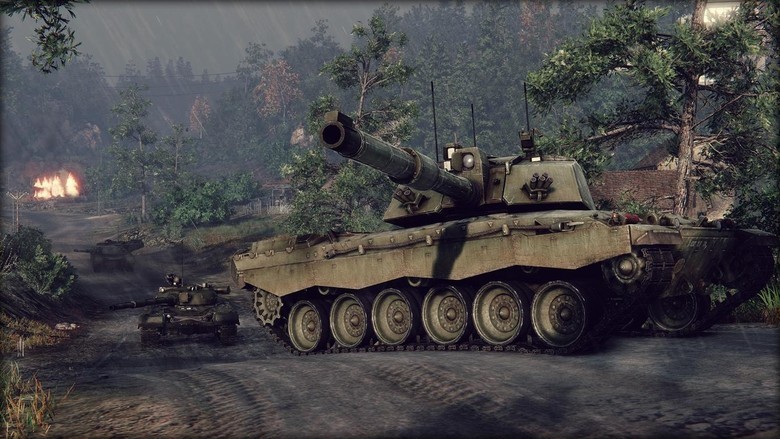
..: , - . . Mail.Ru Group, : , , . , , - - , .
– -. , - . , , -. , . , , , , . - – , . , , - PR- . . , , , (, , , ). - Mail.Ru Group, - – , .
..: ArcheAge. , . , . , ? , ?

..: , , . , . ArcheAge , . , , , ArcheAge . 3.0. , , , ArcheAge 3.0, . , . , ArcheAge , . , , , , – ArcheAge. .
..: - . , , , - , , . -. - . ? ?
..: , , , , PR, , . , , , , . , , , . , . , , . , . Revelation Online. , . Revelation Online. , -, , , , . , , , . , , , , , PVE, PVP, , , . — , .
, . - . , , , . , . , - , – – , -, . - . , , . , .
, , . , , , . , The Coca&Cola Company, - , . , Coca&Cola .
..: .
..: . : , , . , , . . : , . Coca&Cola , , , . , .
..: . : « , ?»
..: , . Mail.Ru Group, . Mail.Ru Group, .
..: « ? ?»
..: -, . , , , . , , 1 . , . - – , – 10-12-15%. , . , , . , X , , .
..: , . . , , , Coca&Cola. , . . , - , - , , ? , ? ? ?
..: , . , , , Buy to play, -: , , , . , . , – , , , -, . , -. .
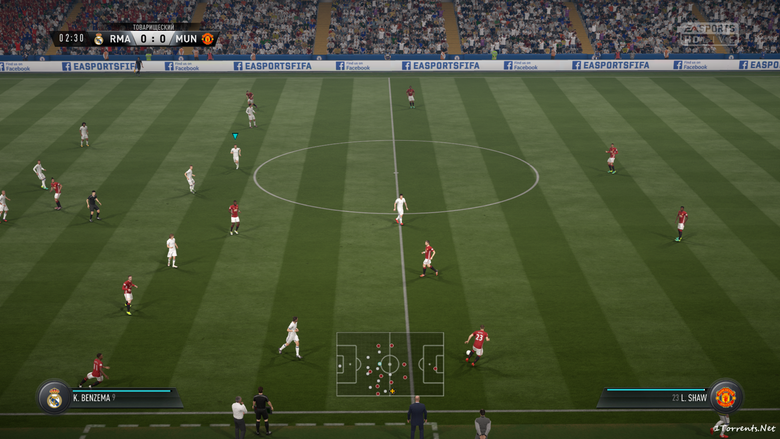
FIFA . Rockstar Games , Blizzard Entertainment . -, , , , - DLC .
. – -, , . , , , . , , - , - , , , - . , . , , , . - , retention ( ). , , , , , - . – , , , , – , - . , , , .
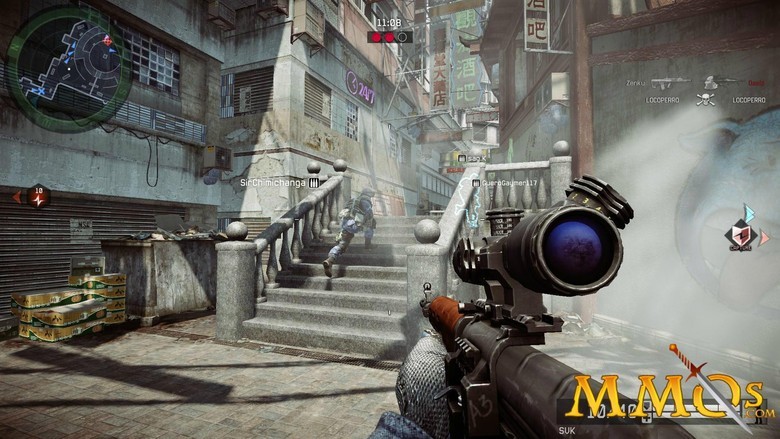
, , . Warface Open Cup. Warface - , . , Open Cup, Fast Cup. , Warface, . , . – - , . , - , , - , . – . — , . .
..: , ?
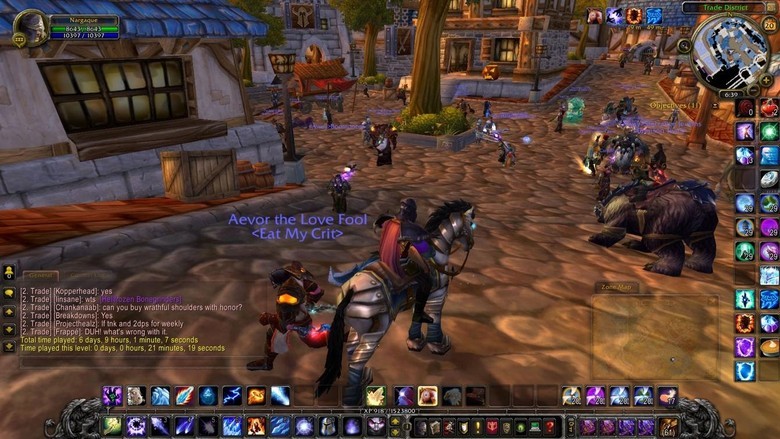
..: . – . World of Warcraft, 7 , . - , , . , - . , , .
, , 10 . . ( ) , , . , , , ( ), . , , . , , , . , , , .
..: : , World of Warcraft? ? , Ultima Online, .

..: Warline , .
..: - - , ? , ?
..: World of Warcraft – , , , . , -. EVE Online .
..: .
..: , , …
..: , .
..: . . , . Blizzard Entertainment – , , World of Warcraft , . World of Warcraft . , , World of Warcraft – , , , 5 . . , - Core Community , . : «, , . ? , Blizzard ». , , , , , . Blizzard Entertainment , . World of Warcraft, , 15 . , . , Blizzard Entertainment . , . , .
, , - . , - , . , World of Warcraft, , World of Warcraft. — . , , , , . . - – , , . , «, ».
..: ? . ?
..: , .
..: , , ?
..: , , , . , , , . – .
..: - , , Allods Online, ? - , , , ?

..: . , , , . -. - road map, , . , . , , , , . , . , , . , - , , . . It's not always the same.
..: . . : « CPI ?»
..: , , .
..: , . , .
..: .
..: . « , ?». , - ?
..: . , . – . , . Apple Dash ( ). Apple , , , ( ) - , - . Apple , . , user experience. , , , , . , , .
, , , . . , . , , , , . - . . .
..: . « , - ?» , .
..: .
..: . - -, , , ? , .
..: , , , . , , . . , , . , , , . , Rockstar Games Blizzard Entertainment – . , , , . – . , - , -, . It is wonderful. , , . , . , . – , , - .
, . , - , , - , , , - . , . , , , , , . It is very important. – , .
..: , . : « ?» ?
..: Mail.Ru Group . . , , . , - . , - , . . , , , .
..: , , . , - , ?
..: , , . , - .
..: , . , .
..: , , , , , . , . , , . , - , , .
..: , hr@corp.mail.ru, , .
, . « , ?» , - ?
..: , , , , - . , « ». , , , , , , .
, , — « ». .
. , , . «Theory of Fun» . , , .
. , gamesindustry.biz gamasutra.com. , . .
..: . , , , . , .
..: .
..: .
..: : , .
..: . !
Source: https://habr.com/ru/post/399087/
All Articles